|
Page 2 of 3
Classic titles
JavaScript has been with use for almost 20 years so it's not surprising that some of the best books on the topic are far from new, and some have been through lots of revisions.
Author: David Flanagan
Publisher: O'Reilly, 2011
Pages: 1100
ISBN: 978-0596805524
Print: 0596805527
Kindle:B004XQX4K0
Rating: 4.5
Reviewed by: Mike James
Dating back to 1996, this is the classic work on JavaScript is suitable for experienced JavaScript programmers. Over time it has evolved from a fairly small book to something that is too big to carry and too big to read. The latest, sixth. edition has been expanded to cover ECMAScript 5 and many HTML5 related technologies.
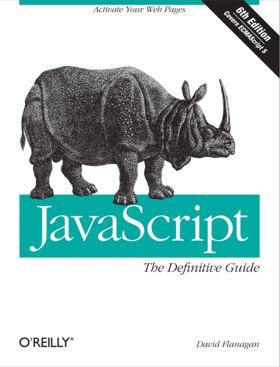
While the book is big and intimidating if you are looking for a "JavaScript Bible" this gets close to being one. It most definitely isn't for the beginner and it probably isn't going to be of much use to the self-taught JavaScript programmer looking to upgrade their skills.
To be the ideal reader for this book you need to be fairly sophisticated about programming and prepared to put work into decoding the text of the book. If you are then this is still the standard work.
Author: Alexei White
Publisher: Wrox, 2009
Pages: 1032
ISBN: 978-0470344729
Print: 0470344725
Kindle: B007ODNRTC
Rating: 5
Reviewed by: Mike James
This is one of the best books on Javascript available and it should be on your bookshelf. It is a reference work but it is very readable and the author presents as logical an account as is possible with a language as strange as Javascript. He describes the history and the levels of browser support that different features receive.
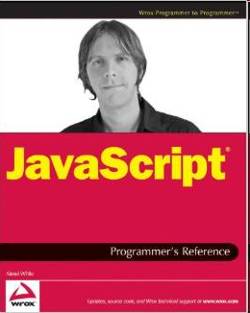
It is in this sense that it reads a bit like a reference work but this is not a criticism. It tells you about the basic structure of Javascript with inevitable focus on its "interesting" features such as weak typing, closures and dynamic evaluation. The ideas are introduced with clear explanations and with the smallest possible examples that can be used to show how it all works.
Author: Douglas Crockford
Publisher: Yahoo Press, 2008
Pages: 176
ISBN: 9780596517748
Print:0596517742
Kindle: B0026OR2ZY
Rating: 4.5
Reviewer: Ian Elliot
If you think that this book is getting a little long in the tooth - think again. It may only be 176 pages long and it may have been published in 2008, which is a long time ago for a book on any computer topic but, as the distilled wisdom of Douglas Crockford, it is still essential reading.
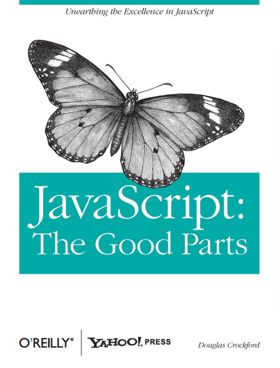
This is not a book for the Javascript beginner - it's an eye opener for Javascript programmers who think that the language is obvious or not very sophisticated. Javascript is in fact revealed to be a dynamic language with a unique approach to many conventional things such as objects and functions.
The key idea explained in the book is Javascript's approach to objects which is quite different to other languages. If you are writing Javascript as if it really was just a scripting language then you probably won't be using its object-oriented features and you won't need this book. If you see Javascript as playing a key role in your web app then this book shows you how to use it in sophisticated ways that will make your app better in all ways.
This is one of the books you have to read if you hope to be a Javascript expert. Highly recommended.
Beginners Start Here
Beginner's tend to encounter JavaScript as a scripting language with the focus on web development. One title that is aimed at beginners who are new to programming who knows something about web design and construction and takes very traditional to learning JavaScript. will reach its 5th eidtion in April 2015. Our review is of the 4th edition, but details of both editions anre included in the sidebar as it might be worth waiting for the new edition.
Author: Paul Wilton and Jeremy McPeak
Publisher: Wrox, 2009
Pages: 792
ISBN: 978-0470525937
Print: 0470525932
Kindle: B00DBOORJW
Rating: 4
Reviewed by: Ian Elliot
This is a book best consumed by a reader who wants to learn JavaScript and already has some of the basics of programming sorted out. This said the chapter on "Common Mistakes" would help a beginner get started as these really are the sort of mistakes that hold people up and make them think that they don't understand - when the problem is minor. The book suffers from the common problem of trying to tell the beginner too much in an effort to be complete, but you can always skip the detail.
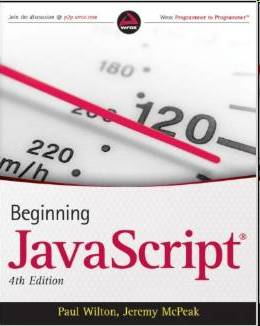
It starts out from the basics and introduces the language quite rapidly. By Chapter Five the authors are introducing objects and how to use them, having already covered variables and control structures. Later chapters deal with more advanced techniques and focus on using JavaScript in the browser - forms handling, strings, date and time and timers and cookies.Most of the examples used are small enough to be understandable and reasonable enough for the non-programmer to see why doing something similar might be useful, e.g. a temperature conversion web page.
The blurb for the updated 5th edition claims that it shows you how to work effectively with JavaScript frameworks, functions, and modern browsers, and teaches more effective coding practices using HTML5. Coverage includes modern coding practices using HTML5 markup, the JSON data format, DOM APIs, the jQuery framework, and more.
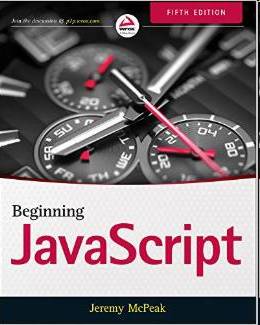
<ASIN: 0596805527>
<ASIN: B004XQX4K0>
<ASIN: 0470344725>
<ASIN: B007ODNRTC>
<ASIN:0596517742>
<ASIN: B0026OR2ZY>
<ASIN: 0470525932>
<ASIN:B00DBOORJW>
<ASIN:1118903331>
|




